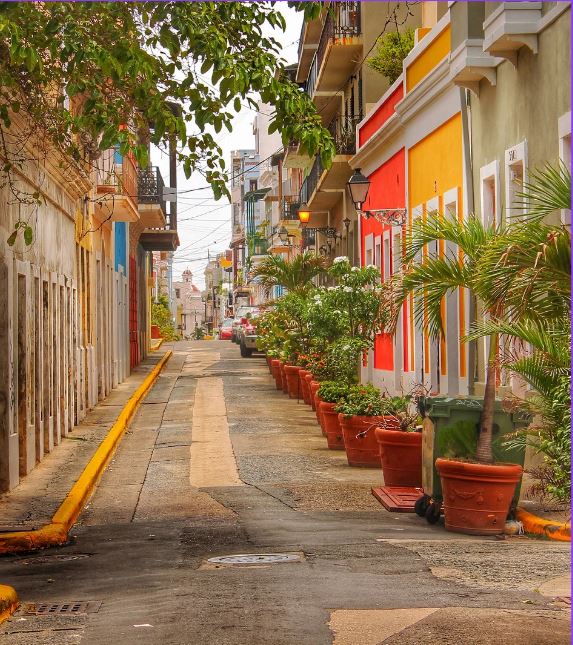
To Sign Up For This Program
Enroll in LAW 370 - Comparative Law Case Study - Puerto Rico during your Spring 2026 enrollment appointment.
2026 Program Dates and Sample Itinerary
Sunday March 8, 2026 to Friday March 13, 2026
Classes are typically held in the morning each day, with legal site visits occurring several afternoons during the week.
Course Description
Course Name and Credits:
- LAW 370 - Comparative Law Case Study - Puerto Rico
- Credits: 1 credit
Course Description:
The majority of the world's population lives under a legal system rooted in the civil law tradition, not common law. It's essential to teach U.S. law students about civil law traditions because it broadens their understanding of global legal systems, improves their ability to practice internationally, and provides a comparative perspective that deepens their understanding of common law. This knowledge is crucial for any student interested in a career in international law, foreign policy, or international business. It helps them recognize that the common law system, while dominant in the U.S. and a few other countries, is not the universal standard. Puerto Rico’s blend of civil and common law, coupled with its unique constitutional status as a U.S. territory, makes it an excellent case study in comparative civil/common law. Puerto Rico offers a rare opportunity to study a legal system where these two traditions are fused.
Additionally, in today’s uncertain immigration and political climate, this “abroad” course—held in a location that does not require a passport or visa—also offers an opportunity for students who are undocumented or on visas and may be unable or afraid to leave and reenter the U.S.
This immersive four-day course will provide law students with three types of learning experiences: 1) substantive lectures, 2) legal site visits, and 3) cultural experiences.
Legal Site Visits
Possible legal site visits include:
- U.S. Federal Court for the District of Puerto Rico
- Puerto Rico Legislature and Supreme Court of Puerto Rico
- Puerto Rico Notary Public Bar Association
- ACLU PR Chapter, PR Civil Rights Commission, and a Law Firm of a Special Education Lawyer
Cultural Activities
Possible Cultural Activities include:
- El Yunque Rainforest Visitor’s Center
- Salsa Dancing
- El Morro Fort and Old San Juan
- Puerto Rican Gastronomy
Faculty Program Director & Teaching Faculty
Faculty Program Director: Francisco Rivera
Common Questions
Here are answers to some of the most common questions we receive about our Spring Break Abroad Programs:
- Spring Break programs are open to Santa Clara Law students or auditors for MCLE credit.
- All classes are taught in English.
- Spring Break programs do count towards the study abroad requirement of the International Law Certificates.
Spring Break Enrollment Deadlines
- October 20, 2025 - Spring Semester Enrollment Starts
- October 24, 2025 - Priority Enrollment Deadline
- January 2, 2026 - Abroad Ambassador Deadline
- January 16, 026 - Last Day to Enroll
Application Process
Students sign up for their Spring Break abroad program by registering for the abroad course in WorkDay. There is no competitive application process.
Spring 2026 registration opens October 20, 2025.
Once you are registered for the course, you will be contacted to complete your abroad package (which includes travel, health and safety information).
Tuition and Costs
We understand that cost is an important factor when considering study abroad. Below are some of the ways we work to make our programs more affordable and financially accessible for students.
- Reduced Tuition: Summer Abroad Tuition is $1,500 per credit, which is significantly lower than on-campus rates at most law schools. These tuition savings are intended to offset travel expenses and improve accessibility.
- No Application or Activity Fees: We only charge tuition. There are no application or activity fees. Tuition covers not only coursework but also program-related social, cultural, and networking events and International Emergency Medical and Travel Assistance.
- Financial Aid: All programs are eligible for federal financial aid. Santa Clara Law Dean’s Fellows may apply their academic scholarships. Other academic scholarships do not apply, since applying scholarships here would not fully leverage their intended value.
- For Santa Clara Students: Abroad Ambassador Program: This competitive program covers airfare for selected students who assist with program marketing.